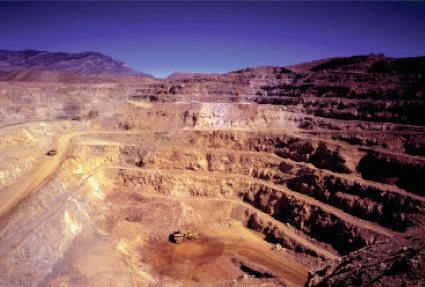
Rare Earths and Energy: China’s Monopoly
A BBC article was just published discussing the new trade dispute the US has filed against China for its monopolization of the rare earths market (rare earths are of strategic importance to the US, check out ASP’s February 2011 report):
Beijing has set quotas for exports of rare earths, which are critical to the manufacture of high-tech products.
It is the first WTO case to be filed jointly by the US, EU and Japan.
They argue that by limiting exports, China, which produces more than 95% of the world’s rare earth metals, has pushed up prices.
The US Trade Representative (USTR) website released a statement saying:
U.S. Trade Representative Ron Kirk announced today that the United States has requested consultations with the People’s Republic of China at the World Trade Organization (WTO) concerning China’s unfair export restraints on rare earths, as well as tungsten and molybdenum. These materials are key inputs in a multitude of U.S made-products and American manufacturing sectors, including hybrid car batteries, wind turbines, energy-efficient lighting, steel, advanced electronics, automobiles, petroleum, and chemicals.
The USTR goes on to say that Beijing employs a highly manipulative price control scheme through its production quota system. Chinese officials have taken to their usual defensive stance and dismissed the allegation. They claim that production quotas are necessary in preventing environmental degradation from excessive mining. Their reasoning is curious as China seldom takes action solely for environmental reasons and has a history of price manipulation.
Analysts predict that there will be a global shortage of rare earth metals within the next few years. This will affect U.S. power generation capacity, electricity prices, and the economy as the material cost to build power plants increases. Also, without these materials, progress on magnetic and laser based nuclear fusion projects like ITER and LIFE cannot go forward. While fusion research is not a large enough consumer to motivate this action, battery and solar cell development is.
If the US and China cannot come to a resolution on this, either manipulative pricing will continue or the US will be forced to develop its own alternatives with greater hast. Such a solution would likely include increased development of Molycorp’s Mountain Pass site, as well as other mines across the country.
To read ASP’s report, Rare Earth Metals and U.S. National Security, click here.
For the factsheet, click here.






[…] Dorsk: Rare Earths and Energy: China’s Monopoly […]
[…] Dorsk: Rare Earths and Energy: China’s Monopoly […]
[…] Dorsk: Rare Earths and Energy: China’s Monopoly […]